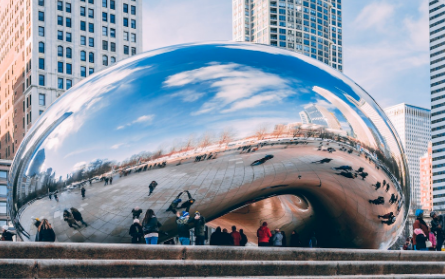What’s New in Mechanic’s Lien & Bond Claim Law?
What’s New in Mechanic’s Lien & Bond Claim Law? There have been some key developments and changes to mechanic’s lien and bond claim laws throughout...

In 2019, Illinois HB2722 passed, which added protection under the payment bond for those who provide rental equipment to public projects. The legislation (effective 1/1/20) defines material, labor, apparatus, fixtures and machinery to include those rented items that are on the construction site and those rented tools that are used or consumed on the construction site in the performance of the contract on account of which the bond is given.
What else should you know about Illinois mechanic’s lien and bond claim rights? Read on!
For private commercial projects, there is generally no statutory provision requiring a preliminary notice — but the pros know serving a non-statutory notice is a terrific best practice!
The lien is a two-step process: 1) serve the Notice of Lien and 2) file the Lien.
The lien is enforceable for the unpaid portion of the contract, except when the owner has disregarded the requirement to obtain sworn statements from contractors when making payments.
For private residential projects, which would be an owner-occupied single-family residence, there is a preliminary notice requirement.
The mechanic’s lien guidelines for residential projects are the same as commercial projects, with one extra step: when contracting directly with the owner, serve a copy of the lien upon the owner within 10 days after filing the lien.
Should you need to proceed with suit to enforce your lien, whether on a commercial project or residential project, file suit within 2 years from last furnishing materials or services, but within 30 days from receipt of a demand to commence suit.
Did You Know? While the statute allows liens for those who lease construction equipment on a commercial project, the statute does not allow liens for those who lease construction equipment if the improvement is either a single-family residence or a multi-family residence of fewer than 12 units in a single building.
Need more details on mechanic’s liens in Illinois? Click here to read full statute!
Like private commercial projects, public projects do not have a preliminary notice requirement. As a best practice, serve a non-statutory notice & include a request for a copy of the payment bond. Typically, for state projects or any political subdivision thereof, payment bonds are required for general contracts exceeding $50,000.
In the event you need to proceed with a bond claim, serve the bond claim notice upon the public entity within 180 days from last furnishing materials or services. Within 10 days from serving the public entity, serve a copy of the bond claim notice upon the prime contractor. File suit to enforce the bond claim within 1 year from last furnishing materials or services, but within 90 days from serving the public improvement lien, if a public improvement lien was served.
When proceeding with a public improvement lien, you should serve the lien upon the public entity and the prime contractor as soon as possible to trap funds, but within 30 days from written demand. The claim is a lien on the funds owed to the prime contractor by the owner at the time the lien is served.
Key Suit Notes for Public Improvement Liens
Have Questions? Need Help? We’re here for you!

What’s New in Mechanic’s Lien & Bond Claim Law? There have been some key developments and changes to mechanic’s lien and bond claim laws throughout...

What You Should Know about Securing Utah Mechanic’s Lien and Bond Claim Rights Furnishing to a construction project in the Beehive State? Well,...

Wind Turbines: Are Mechanic’s Lien Rights Available? A recent court of appeals decision left one Illinois subcontractor with over $3 million in...